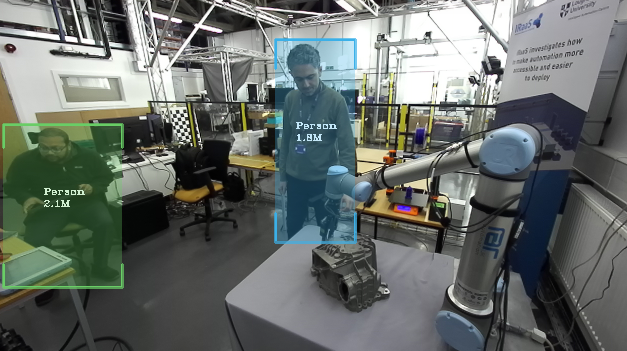Priority Area 4 – Acceptance

Explore the societal, cultural and economic impact of automation to inform future policy, regulations and education requirements.
Aim
To define a pathway to increased social acceptability. Investigate the transformative societal and cultural impact of smart, collaborative automation to inform policy and educational strategies for long term sustainability and growth.
Motivation
We need to consider the implementation of new automation from multiple socio-economic viewpoints, for example who are the key stakeholders (current and future) and how can we effectively engage with agencies such as trade unions, insurance underwriters and lawyers to ensure that all stakeholders recognise the safety and reliability of collaborative systems and their net potential benefit.
Approach
To understand the cultural and societal impact of increased deployment of collaborative robotics technology. To inform policy, regulatory and ethical frameworks. Whilst capturing requirements of emerging jobs and future skills to formulate appropriate training programmes accross the educational spectrum.
Key Deliverables
- D4.1 A framework for engagement of multiple actors to ensure the safe, acceptable, and efficient introduction of new automation paradigms
- D4.2 A training and skills map for operators, integrators, and managers to build the future workforce capable of optimally operating and implementing new automation and industrial robotics paradigms (and a process for evolving this)
- D4.3 A roadmap for the continuous review and update of socio-economic factors for evolving automation and human robot interaction technologies to ensure continuous engagement with stakeholders
Testbeds
Priority Area 4 will be active across all test beds and through wider involvement of stakeholders.
Team
The Priority Area 4 Leads are: Professor Phil Webb (Cranfield University), Dr Sarah Fletcher (Cranfield University), Dr Ella-Mae Hubbard (Loughborough University) and Professor Angela Daly (University of Dundee)